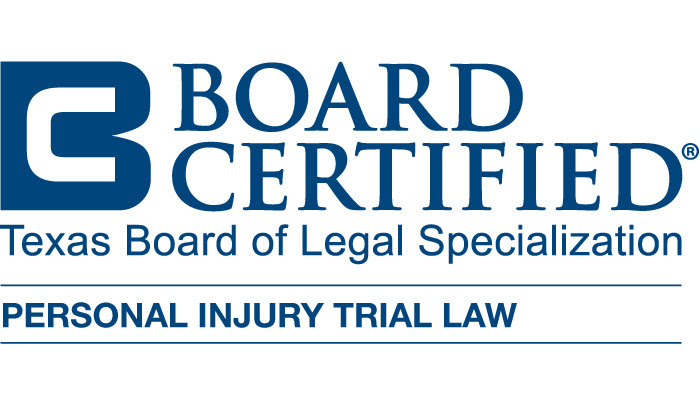Understanding the intricacies of insurance coverage in the event of a rideshare accident can be daunting, especially when comparing the policies of major companies like Uber and Lyft. These two rideshare giants have significantly different approaches to insurance coverage, and understanding these differences is crucial for both drivers and passengers.


Uber’s Insurance Coverage in Texas
Uber’s insurance policy for rideshare drivers in Texas is structured around the different phases of a ride, each with varying levels of coverage. The first phase is when the driver has the app on but has not yet accepted a ride request. During this period, Uber provides contingent liability coverage, which means the driver’s personal auto insurance is the primary coverage. Uber’s contingent liability coverage acts as secondary insurance and only comes into play if the driver’s personal insurance denies the claim or does not fully cover the damages. This contingent policy typically provides up to $50,000 for bodily injury per person, $100,000 for bodily injury per accident, and $25,000 for property damage.
Once a driver accepts a ride request and is en route to pick up a passenger, the coverage shifts. Uber’s insurance during this phase includes $1 million in third-party liability coverage. This coverage protects against claims from other parties involved in an accident, including pedestrians, cyclists, and other drivers. Additionally, Uber provides contingent comprehensive and collision coverage, but only if the driver has comprehensive and collision coverage on their personal auto policy. This contingent coverage comes with a $2,500 deductible.
When the passenger is in the vehicle, the coverage remains robust. The $1 million third-party liability coverage continues, ensuring that passengers and other affected parties are covered. The contingent comprehensive and collision coverage also remains active under the same conditions and deductible. Furthermore, Uber offers uninsured or underinsured motorist coverage, which protects the driver and passengers if an accident is caused by another driver who lacks sufficient insurance.
My focus is to give a voice to families who have suffered a wrongful death or a serious injury to a family member caused by an 18-Wheeler, commercial truck, or a drunk driver. Contact us today, we can help you.Helping Injury Victims for Over 25 Years
Lyft’s Insurance Coverage in Texas
Lyft’s insurance policy also revolves around the different stages of the rideshare process. When the driver has the app on but has not yet accepted a ride request, Lyft provides similar contingent liability coverage. This coverage offers up to $50,000 per person for bodily injury, $100,000 per accident for bodily injury, and $25,000 per accident for property damage. Like Uber, this coverage is contingent on the driver’s personal auto insurance being primary.
After accepting a ride request and while en route to pick up a passenger, Lyft’s insurance coverage mirrors that of Uber with $1 million in third-party liability coverage. This coverage ensures that other parties involved in an accident are protected. Additionally, Lyft provides contingent comprehensive and collision coverage, with the requirement that the driver has comprehensive and collision coverage on their personal auto policy. However, Lyft’s deductible for this coverage is $2,500, identical to Uber’s.
When a passenger is in the vehicle, Lyft maintains its $1 million third-party liability coverage, ensuring that both passengers and other parties are covered. The contingent comprehensive and collision coverage continues, adhering to the same conditions and deductible. Lyft also includes uninsured and underinsured motorist coverage to protect drivers and passengers in the event of an accident caused by a driver with insufficient insurance.
Key Differences Between Uber and Lyft Insurance Policies
While Uber and Lyft’s insurance policies in Texas are quite similar, there are subtle differences that can impact drivers and passengers. One notable difference lies in the specific handling of certain claims and the nuances of coverage implementation. Both companies offer $1 million in third-party liability coverage and contingent comprehensive and collision coverage with the same deductible amount. However, the exact terms and conditions of these coverages can differ based on the specifics of each company’s policy and their handling of claims.
Another key difference is how each company handles claims involving uninsured or underinsured motorists. Both Uber and Lyft provide coverage for accidents caused by drivers who lack sufficient insurance, but the details of these coverages can vary. It is crucial for drivers and passengers to understand the specifics of their coverage under each company’s policy to ensure they are adequately protected in the event of an accident.
The Importance of Understanding Rideshare Insurance
For rideshare drivers, having a thorough understanding of the insurance coverage provided by Uber and Lyft is essential. This knowledge not only helps drivers protect themselves in the event of an accident but also ensures they can provide accurate information to their passengers. Passengers, too, benefit from understanding the coverage provided by these companies, as it offers peace of mind and clarity regarding their protection while using rideshare services.
Texas law requires rideshare companies to provide certain levels of insurance coverage, but knowing the specifics of Uber and Lyft’s policies can help drivers and passengers navigate the complexities of rideshare insurance claims. This understanding can also influence decisions on whether additional personal insurance coverage is necessary to fill any potential gaps in coverage.
Related Videos
Choosing a Personal Injury Attorney
Types of Compensation in a Truck Accident Claim
Navigating Insurance Claims After a Rideshare Accident
In the unfortunate event of an accident while using Uber or Lyft, knowing how to navigate the insurance claims process is vital. Immediately after an accident, ensuring the safety of all parties involved and seeking medical attention if needed is the first priority. Following this, reporting the accident to the rideshare company through their app or support channels is essential. Both Uber and Lyft have specific procedures for reporting accidents, and timely reporting is crucial to ensure a smooth claims process.
Gathering evidence at the scene of the accident can significantly aid in the claims process. This includes taking photographs of the accident scene, vehicle damage, and any visible injuries, as well as obtaining contact information from all parties involved and any witnesses. This evidence can help support the claim and provide necessary documentation to the rideshare company and insurance providers.
Working with the rideshare company’s insurance representatives involves providing all required information and documentation. Both Uber and Lyft have claims departments that handle rideshare accidents, and cooperating with these departments is essential to expedite the claims process. In some cases, it may be necessary to work with the at-fault driver’s insurance company if the accident was caused by another party.
The Role of Personal Auto Insurance in Rideshare Accidents
While Uber and Lyft provide significant insurance coverage, personal auto insurance also plays a critical role in rideshare accidents. Drivers should ensure they have adequate personal auto insurance coverage that aligns with their needs and complements the coverage provided by the rideshare companies. Some personal auto insurance policies may exclude coverage for rideshare activities, making it necessary to have a rideshare endorsement or a commercial auto insurance policy.
Passengers involved in rideshare accidents should be aware that their own auto insurance policies may provide additional coverage. Personal injury protection (PIP) or medical payments (MedPay) coverage on their auto insurance can help cover medical expenses resulting from an accident. Understanding the interplay between rideshare company insurance and personal auto insurance can help ensure all parties are adequately protected and that claims are handled efficiently.
Seeking Legal Assistance After a Rideshare Accident
Navigating the aftermath of a rideshare accident can be overwhelming, especially when dealing with insurance claims and potential legal issues. In such cases, seeking legal assistance can provide invaluable support and guidance. An attorney with experience in rideshare accidents can help drivers and passengers understand their rights, negotiate with insurance companies, and pursue compensation for damages and injuries.
Legal assistance can also be crucial in cases where the rideshare company or the at-fault driver’s insurance company denies a claim or offers insufficient compensation. An attorney can help gather evidence, build a strong case, and advocate on behalf of the injured party to ensure they receive the compensation they deserve. Additionally, legal representation can provide peace of mind, allowing the affected parties to focus on recovery while their legal matters are handled by professionals.
Defending Your Rideshare Rights
If you or a loved one has been involved in a rideshare accident in Texas, understanding the complexities of Uber and Lyft’s insurance coverage is crucial. Navigating the claims process and ensuring you receive the compensation you deserve can be challenging. At Willumsen Law Firm, P.C., we are dedicated to helping individuals affected by rideshare accidents. Our experienced legal team can provide the guidance and support you need to navigate the legal landscape and secure the compensation you deserve. Contact us today to schedule a consultation and learn more about how we can assist you in your rideshare accident case.



